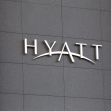Brian Hunt wanted to be a firefighter. Fortunately, during the COVID-19 pandemic, the City and County of Los Angeles offered a condensed four-week training course through the county’s Fire Fighting Training Academy. Hunt signed up and learned that during the training period, he and the other new recruits were required to stay in a hotel for six out of every seven days, because of California Governor Gavin Newsom’s stay-at-home order. Hunt and his fellow trainees, however, were not to be compensated for overtime. In June 2021, Hunt filed class action lawsuits against the City and County to compensate him and others similarly situated.
To comply with the stay-at-home order, the County prohibited participating firefighter trainees from leaving their subsidized hotel after their daily training except in emergency cases or on weekends. Hunt and the other trainees signed a “Hotel Agreement” when they enrolled in the course. It said they “were required to remain physically and mentally available at all times” even if not working. However their hotel time would not be supervised and they were free to “sleep, shower, eat, hydrate, exercise, play games, socialize with other recruits in small groups, call loved ones, watch movies, etc.”
After Hunt’s initial filing which alleged that the defendants violated the Fair Labor Standards Act, the defendants moved the case to federal court. Next, both Hunt and the LA County defendant filed motions for summary judgment. District Court Judge Percy Anderson of the Central District of California granted the County’s motion. Hunt appealed to the Ninth Circuit Court of Appeal and on September 19, the appellate court affirmed Anderson’s ruling.
In a 3-0 memorandum opinion, signed by Circuit Judges Ryan D. Nelson, Eric D. Miller and Roopali H. Desai, the court agreed with Anderson whose district court ruling relied on 29 C.F.R. § 553.226(c), the section of the Code of Federal Regulations that creates rules “for determining the compensability of training time.” The section that Hunt relied on says that police or fire protection employees, “who are in attendance at a police or fire academy or other training facility, are not considered to be on duty during those times when they are not in class or a training session, if they are free to use such time for personal pursuits. Such free time is not compensable.”
The panel said that the pandemic’s restrictions on Hunt and his co-plaintiffs were the result of the pandemic’s “extenuating circumstances” that had additional restrictions on their activities during confinement. For example, they were not allowed visitors. Hunt also testified that he spent “a majority of his time at the Hotel sleeping.”
The opinion thus said, “The regulation’s plain text resolves this case.” The circuit judges were not persuaded by Hunt’s contentions that this regulation did not apply to him and his fellow trainees. He argued that they were in fact, “always on duty” and “always on call and tethered to the hotel.” Thus he maintained that he was not “free to use such time for personal pursuits.”
The Ninth Circuit did not agree. The opinion said, “…the undisputed facts show that Hunt was not expected to do anything work-related during his time at the hotel and that he did, in fact, use the time for “personal pursuits” such as showering, laundry, and video chatting with friends and family.”
The opinion then cited a similar set of facts in the precedent set by Brigham v. Eugene Water & Electric Board, which applied to a different regulation, 29 C.F.R. § 785.23. This code Section said that “an employee who resides on his employer’s premises… is not considered as working all the time he is on the premises…” The Ninth Circuit panel elaborated by saying that their previous ruling held that “an employee required to remain on premises need not have “substantially the same flexibility or freedom as he would if not on call.”
In affirming the district court’s summary judgment in favor of the defendant, the appellate court reasoned, “A contrary conclusion…would turn “all or almost all on-call time” into “working time, a proposition that settled case law and the administrative guidelines clearly reject.” Hunt’s free time at the hotel was not compensable…just because the County, in its efforts to comply with California’s stay-at-home order, required him to remain at the hotel.”






